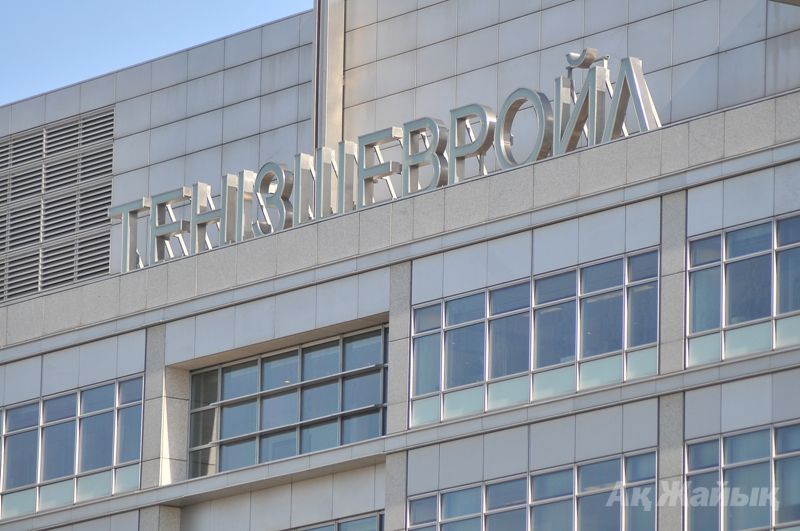By Laura Suleimenova
 As it became known to Ak Zhaik newspaper the large-scale project of Tengizchevroil LLP - Wellhead Pressure Management / Future Growth Project (WPM/FGP) - considerably rose in cost, and the date of implementation was postponed from 2019 to 2021. According to updated estimates and schedule of works, based on the results of front end engineering design the cost of the project increased from $23,7 billion to $38,8 billion.
As it became known to Ak Zhaik newspaper the large-scale project of Tengizchevroil LLP - Wellhead Pressure Management / Future Growth Project (WPM/FGP) - considerably rose in cost, and the date of implementation was postponed from 2019 to 2021. According to updated estimates and schedule of works, based on the results of front end engineering design the cost of the project increased from $23,7 billion to $38,8 billion.
SIMILAR NAMES
FGP is expected to ensure the increase of production volume by 12 million tons) and WPM - loading of currently operating plants.
According to the latest data, the cost of FGP increased from $11 billion to $14 billion, WPM - from $10,4 billion to $22,4 billion; costs for drilling and construction of wellhead platforms, on the contrary, have been optimized - from $2,3 billion down to $1,9 billion.
As it was reported earlier, for project management at the implementation stage (engineering, purchases, construction management) two legal entities with similar names have been established. The first one is KPJV Ltd. (joint venture of the Kazakhstan institute of Oil and Gas, "Kazgiproneftetrans" and alliance of foreign companies Worley Parsons Limited and Fluor Limited). The second legal entity - the Kazakh Projects Joint Venture Limited (PJV) company with two foreign shareholders: the same Fluor and Worley Parsons with an equal participating stocks. TCO awarded engineering and design contracts to these companies. According to various data, out of $38,8 billion - $5 to $7 billion is scheduled to spend for payment of their work scope. And the lion's share, up to 70% is planned for payment to Kazakh Projects Joint Venture Limited (PJV). The remaining amount will be spent on purchases and construction.
 As for the factors that entailed an increase of projects cost - our experts name three of them. They are: postponing the terms till 2021, the construction of Prorva port for transportation of modules from seaport in Aktau (general contractor - Tenizservice LLP) and chosen by TCO a modular method of construction.
As for the factors that entailed an increase of projects cost - our experts name three of them. They are: postponing the terms till 2021, the construction of Prorva port for transportation of modules from seaport in Aktau (general contractor - Tenizservice LLP) and chosen by TCO a modular method of construction.
According to our sources, most of the modules, up to 75-80%, will be manufactured in South Korea. The construction of modules by its specifics is close to vessel construction. For TCO it is necessary to complete a huge amount of work within limited time and shipyards (plants) in Japan, South Korea and China are capable of doing that. The Koreans were selected because production in Japan is costly and the quality of Chinese product is not always high. An insignificant part of modules will be constructed for TCO in Italy.
A JOURNEY BEYOND THE SEVEN SEAS
Why TCO preferred modular method of construction, when traditional method is much cheaper?
During traditional construction all equipment is assembled on site. In this case logistics expenses are lower because you can deliver the fragments of equipment by rail.
It is much more complicated with modular principle. In TCO’s case, equipment will be assembled into modules like with huge parts of "Lego" construction toy, and then it will be further assembled on site. Equipment elements, according to our data, mainly produced in European countries (the biggest share in Great Britain, will be transported first across Europe and Asia to the place of modules production - to Korea. And from Korea the modules will be delivered by sea to Tengiz. The approximate route: the East China Sea – the South China Sea, Strait of Malacca – the Arabian Sea – the Red Sea – the Suez Canal – the Mediterranean Sea – the Turkish Bosphorus and Dardanelless Straits – further, through the Russian internal waterways (RIW) – the Black Sea – Don – the Volga-Don channel – Volga – the Caspian Sea – port at Prorva, from where the modules will be transported by autotgransport to construction sites in Tengiz.
For movement across Volga-Don Canal where there are restrictions on length, width and weight of barges, big modules will be broken into three pieces. For these purposes it is planned to use the capacities at the Romanian port of Constanta. There is also an alternative option for delivery by the northern system of channels through the Baltic Sea, but this route is much longer.
MeanwhileVolga-Don Canal is closed for cold season (about 5 months in a year), and the Northern Caspian Sea during that time is covered with ice, plus the ban on navigation from April 1 to July 15 due to spawning of sturgeons. It turns out that for delivery of modules to Tengiz there are only a few months in a year. Perhaps, this could impact the dates of future implementation of the project.
OUT OF HARM'S WAY
However Tengizchevroil, despite all these difficulties, preferred a modular method.
Possibly, during decision-making the oil company where 75% belong to American ExxonMobil and Chevron, was guided by two main arguments: to load overseas plants in the times of world economic crisis and eliminate a big concentration of personnel on a construction site (traditional method requires a large number of construction workers) for the purpose of decreasing the risks of strikes and interethnic conflicts. As it was the case during the construction of second generation plants (SGI/SGP). To recall, in the fall of 2006 at Tengiz there was a mass fight between the Kazakhstan and Turkish workers during which 140 people were injured.
As for the Kazakhstan content in FGP, according to TCO official information, its share will amount to $7,8 billion.
– Scales and level of technologies of Aktau shipyards will not allow to make a large number of hi-tech modules quickly. I believe that in our country only pipe racks (supporting structures for pipelines) and, perhaps, something very small will be constructed, – comments one of our experts.
One more interesting fact: local content department in the office of Kazakh Projects Joint Venture Limited (PJV) in Farnborough (Great Britain) is headed by Arun Mehra- the Indian by origin and his deputy is Alastair Moffat. The fact that the leading positions in Kazakhstan content department are occupied by expats, once again, according to local suppliers of goods and services, testifies that the domestic businesses from implementation of this project, as usual, will get only crumbs from a lordly table.
 В Атырау -10
В Атырау -10